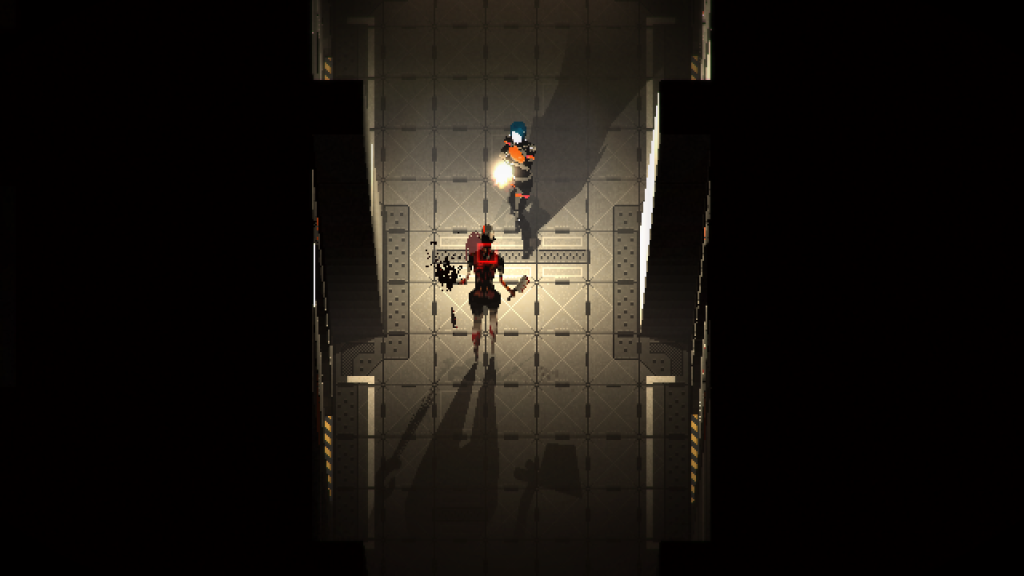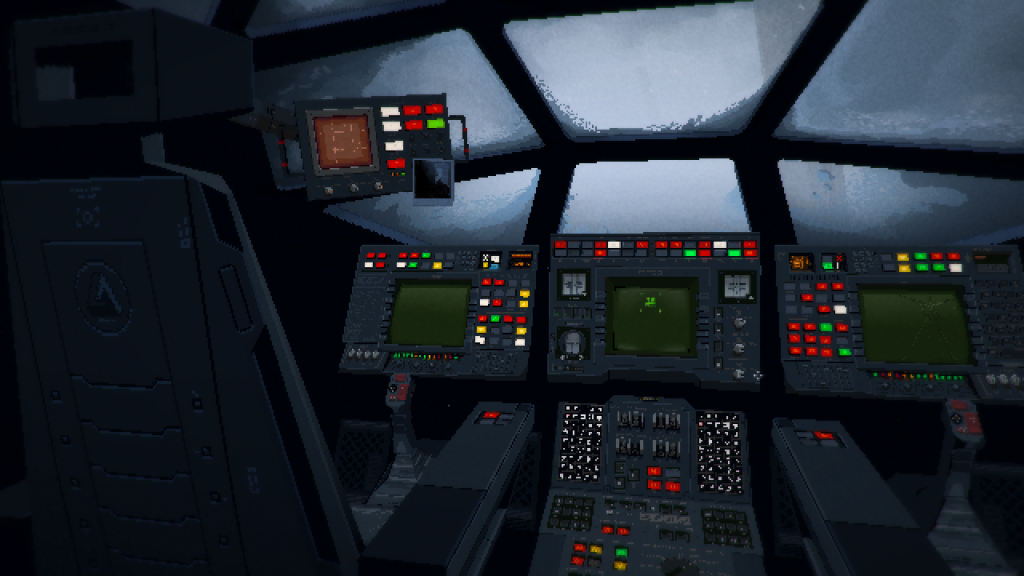
Of my entire Game of the Year list, Signalis might be the most out-of-character choice that I’ve made. It’s a game modeled after classic survival horror titles like Resident Evil and Silent Hill, set in a sci-fi world and introducing a few twists that hone the experience into something new.
While this genre is typically not my style, Signalis’ science fiction setting and enigmatic story setup was enough to pique my curiosity. And ultimately, I found that once I was invested, I was compelled to see where it went.
Old and New
Signalis is deeply committed to its old-school aesthetic, but finds ways to transform it with modern graphics technology to create an exceptionally haunting atmosphere. Light and shadow works in realistic ways and character animations are fluid and detailed, making the stark and terrifying environments and enemies feel more lifelike than the classics that they mimic while remaining pixelated and indistinct. The visual effects bring another dimension to the uniquely unnerving look and feel of late 90s horror games.
Throughout the game, scattered key items and puzzles make backtracking a necessity; meanwhile, the resource scarcity, limited inventory space, and occasionally-respawning enemies make it harrowing. The world is separated into a set of hubs with surrounding areas to explore, keeping individual areas well-contained but maintaining a labyrinthine feeling.

The puzzles that must be solved to progress include a few duds, and a couple that can be solved too easily or simply have very clear instructions sitting on the table right next to them. But by and large, the puzzles balance themselves well. They’re bizarre enough to be compelling and laden with symbolism, but have enough internal logic to be solvable and satisfying. In particular, some puzzles make great use of the the character’s radio, requiring players to tune it in particular ways to pick up signals and interpret the data they’re receiving.
Beyond these things, Signalis largely adheres to the mechanical formulae it takes inspiration from. There are a good deal of terrifying enemy and boss encounters that keep the game’s tension high, and the brief story sequences interspersed between areas perpetually add more mysteries to its story. And while it’s adding its own twists, it’s also distilling a deep appreciation of 90s horror classics into its own design.
Open to Interpretation
The story of Signalis follows an android woman named Elster, an uncommon model of Replika (robotic laborers and military personnel that have use mental data extracted from humans as their baseline personalities) deployed alongside a Gestalt (human) officer. When Elster wakes up from maintenance and finds her ship crashed and her partner missing, she journeys planetside to find out what happened.
Signalis’ story does a lot of its heavy lifting through environmental details. The scattered documents and propaganda posters in the setting tell the story of a interplanetary empire that dominates the society that the characters hearken from, and of the various planets in the solar system that it instrumentalizes in different ways. Meanwhile, Elster encounters increasingly monstrous threats that begin to blur the line between reality and nightmare.
Signalis is not especially clear about what’s going on in its story, and that’s one of the things that makes it so fun to explore. It operates in a psychological horror mode, weaving metaphor into the reality of the game and barraging the player with enigmatic phrases and details as they try to unravel what’s going on.

Its storytelling leverages a variety of techniques, including scattered documents and propaganda, occasional NPC encounters, and frenetic montage sequences filled with vivid imagery. The disorienting switches between these formats, as well as pivots between 3rd person and 1st person perspectives, powers the dreamlike logic of the game and amplifies its terror and its mystery.
Conclusion
Signalis occupies a genre that I never really gravitate towards. My disinterest in survival horror generally boils down to a lack of enthusiasm for the aesthetic trappings of the genre (zombies and grotesque monsters), combined with a preference for horror that’s more overtly psychological and less reliant upon mounting dread and mechanical concerns like resource scarcity.
But to me, Signalis found a balance that other games haven’t, drawing me into its story and keeping me engaged and unnerved throughout its whole length. I don’t mean to imply that it’s better than the giants upon which it stands, but it does stand out from them. All in all, I find it remarkable that Signalis managed to translate the appeal of these classics into something that I was able to stick with; and into something that in turn stuck with me so strongly after its credits rolled.